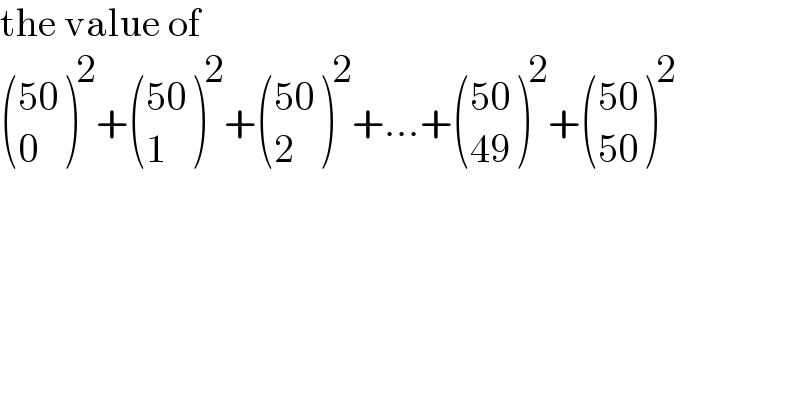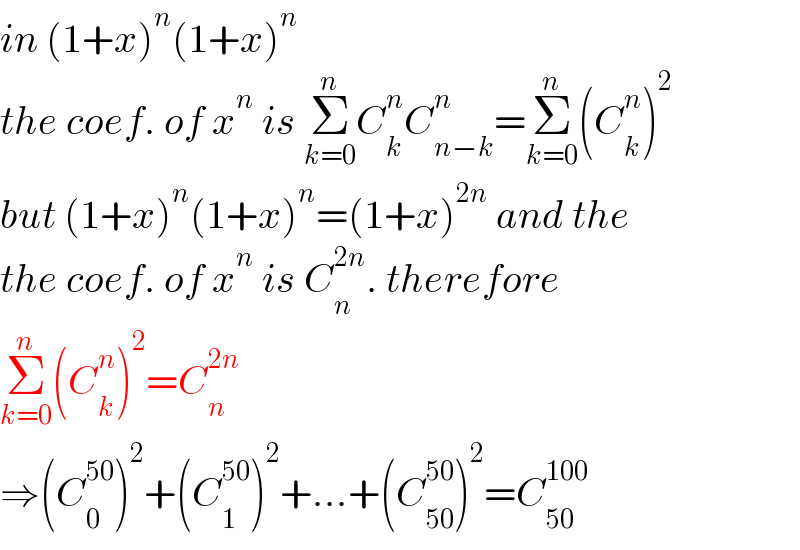
Question and Answers Forum
Question Number 151073 by mathdanisur last updated on 18/Aug/21

Answered by ArielVyny last updated on 18/Aug/21
![S_n =Σ_(k=0) ^(50) (C_(50) ^k )^2 ln(S_n )=2Σ_(k=0) ^(50) ln(((50!)/(k!(50−k)!)))=2ln(50!)(50+1)−2Σ_(k=0) ^(50) ln[k!(50−k)!] ln(S_n )=102ln(50!)−2Σ_(k=0) ^(50) ln(k!)−2Σ_(k=0) ^(50) ln(50−k)! ln(S_n )=102ln(50!)→S_n =e^(102ln(50!)) =e^(ln(50!)^(102) ) S_n =(50!)^(102)](Q151106.png)
Commented by mathdanisur last updated on 18/Aug/21

Commented by mr W last updated on 18/Aug/21

Answered by mr W last updated on 18/Aug/21

Commented by mathdanisur last updated on 18/Aug/21

